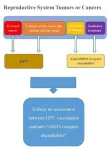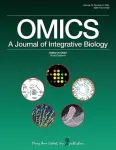(Press-News.org) National clinical guidelines for the treatment of COVID-19 vary significantly around the world, with under-resourced countries the most likely to diverge from gold standard (World Health Organization; WHO) treatment recommendations, finds a comparative analysis published in the open access journal BMJ Global Health.
And nearly every national guideline recommends at least one treatment proven not to work, the analysis shows.
Significant variations in national COVID-19 treatment recommendations have been suspected since the advent of the pandemic, but these haven’t been formally quantified or studied in depth, note the researchers.
And despite the fact that COVID-19 is no longer taking the toll on lives and health that it once did, the virus is still evolving and active around the globe, they emphasise. The WHO only rescinded COVID-19’s status as a public health emergency in April 2023.
To assess how well national clinical practice followed the recommendations of the WHO (11th version; July 2022)—regarded as the gold standard—-for the treatment of COVID-19, the researchers analysed the content of all 194 WHO member states’ most recent national guidelines at the end of 2022.
Each set of guidelines was scored according to how closely they aligned with the WHO recommendations. Extra points were awarded for those that had been updated within the preceding 6 months; those that made recommendations in line with the strength of evidence; and those that included assessments of the effectiveness of treatments and their side effects.
The wealth and resources of each country were then compared using per capita World Bank gross domestic product (GDP) in US dollars for 2021, the Human Development Index 2021, and the Global Health Security Index 2021.
Of the 194 countries contacted, 72 didn’t respond. Of the remaining 122, 9 had no formal guidelines or couldn’t be accessed (1) and a further 4 didn’t recommend any treatments, so these were excluded, leaving a total of 109.
The countries for which guidelines weren’t obtained had, on average, smaller populations, lower GDP per head, and a lower Global Health Security Index, indicative of greater economic challenges and less ability to respond to health emergencies.
The 11th iteration of the WHO guidelines categorises disease severity, but most of the reviewed guidelines (84%; 92) didn’t define COVID-19 severity in the same way, and some didn’t define severity at all (6.5%; 7). Only 10 guidelines (9%) used disease severity definitions that were comparable with those of the WHO.
Most (77%; 84) guidelines didn’t include an assessment of the strength or certainty of the therapeutic recommendation. And the range of recommended drugs, irrespective of severity, varied from 1 to 22. The WHO guidelines recommend a total of 10.
In all, 105 guidelines included at least one treatment recommended by the WHO, but 4 didn’t recommend any. Countries in the African region had a significantly lower proportion of therapies recommended by the WHO, compared with countries in Europe and SouthEast Asia.
The most commonly recommended drugs were corticosteroids (92%;100), with 80% (88) of guidelines recommending them for the same disease severity as the WHO. But corticosteroids weren’t recommended in severe disease in nearly 1 in 10 guidelines despite overwhelming evidence of their benefit.
Remdesivir was recommended for severe or critical disease in half the guidelines (51%;72). But the WHO guidelines only indicate remdesivir conditionally for mild disease in patients at highest risk of hospital admission.
In late 2022, many guidelines continued to recommend treatments that the WHO had advised against, including chloroquine, lopinavir–ritonavir, azithromycin; vitamins and/or zinc.
One in three guidelines (36; 33%) recommended at least one neutralising monoclonal antibody directed against SARS-CoV-2, the virus responsible for COVID-19.These guidelines were issued by wealthier countries.
But 2 of these monoclonal antibodies—bamlanivimab plus or minus etesivamab and regdanivimab—appeared consistently in clinical guidelines, despite not being recommended by the WHO.
Doses of the most commonly recommended drugs also varied. And many guidelines hadn’t been updated for more than 6 months.
Guidelines from under-resourced countries diverged the most from the WHO recommendations, when stratified by annual GDP, the Human Development Index, and the Global Health Security Index.
The researchers acknowledge several limitations to their findings, including the scoring used to assess the guidelines, which hasn’t been validated by other studies, and the inability to assess all national guidelines.
But they nevertheless ask: “Why do [national guidelines] differ so much in their treatment guidance for such a widespread and potentially serious infection when all have access to the same information?
“Apart from the prohibitive cost of some medications for low-resource settings we do not have a satisfactory explanation.”
They offer some possible explanations, including variations in how the severity of, and therefore the most appropriate treatment for, COVID-19 is defined; the evolution of the evidence; and the research chaos and confusion of the early stages of the pandemic, leading to claims and counterclaims, compounded by intense political and media interest.
“In this ‘fog of war’ countries clearly felt the need to say something and do something, even if it was based on very little evidence,” explain the researchers. “But why many of these unproven remedies continued to be recommended as evidence of their ineffectiveness accrued is much less clear,” they add.
“There is clearly more variation in national guidelines for COVID-19 therapeutics than there should be to ensure optimum treatment,” which aren’t justified by significant differences between populations or geographic variation in SARS-CoV-2 antiviral susceptibility, they write.
Global health inequalities clearly have a part to play, leading to the recommendation of ineffective, unaffordable and unavailable therapies, they suggest.
“The formalisation of processes in the development of [national guidelines] for COVID-19 and other infectious diseases is essential for ensuring that these guidelines are grounded in the best available evidence,” they conclude.
“A systematic and structured approach would not only enhance the credibility of the guidelines but could also contribute to their effectiveness in guiding public health interventions, especially in a pandemic setting.”
END
Significant global variation in national COVID-19 treatment guidelines
Most countries recommend at least one treatment that definitely doesn’t work. Greatest divergence from gold standard recommendations in under-resourced countries
2024-04-23
ELSE PRESS RELEASES FROM THIS DATE:
Cost increasingly important motive for quitting smoking for 1 in 4 adults in England
2024-04-23
Health concerns are still the primary motive for more than half of those who say they want to stop smoking in England, but cost is now a key factor for more than 1 in 4, finds an analysis of national survey responses, published in the open access journal BMJ Public Health.
Given this shift in thinking, making much more of the potential savings to be had might encourage more people to stub out for good, suggest the researchers.
Health concerns are generally the primary motive for people trying to stop smoking, with social and ...
Is there an association between HPV vaccination and anti-NMDA receptor encephalitis?
2024-04-22
Anti-N-methyl-d-aspartate (Anti-NMDA) receptor encephalitis is an acute
autoimmune disorder that develops both neurological symptoms and psychiatric
symptoms, including hallucination, cognitive disturbance, epilepsy, movement
disorder, and impaired consciousness. This disease may be misdiagnosed at the early
stage as a psychosis disease because of primary psychiatric symptoms. The
misdiagnosis may delay appropriate therapeutic intervention. Most patients with
anti-NMDA receptor encephalitis respond to immunotherapy [1, 2].
The pathology of this disease is ...
Blood-based multi-omics guided detection of a precancerous pancreatic tumor
2024-04-22
A new case report published in the peer-reviewed OMICS: A Journal of Integrative Biology describes how longitudinal multi-omics monitoring (LMOM) helped to detect a precancerous pancreatic tumor and led to a successful surgical intervention. Click here to read the article now.
The patient had undergone annual blood-based LMOM, in which 143 endogenous metabolites in serum and a panel of 140 proteins in plasma were measured. David Wishart, PhD, from the University of Alberta, ...
Eye-opener: Pupils enlarge when people focus on tasks
2024-04-22
Working memory is one of the brain’s executive functions, a skill that allows humans to process information without losing track of what they’re doing.
In the short term, working memory allows the brain to complete an immediate task, like loading the dishwasher. Long term, it helps the brain decide what to store for future use, such as whether more dishwasher soap will be needed.
University of Texas at Arlington researchers know that working memory varies greatly among individuals, but they aren’t sure exactly why. To better understand, Matthew Robison, assistant professor of psychology, and doctoral student Lauren D. Garner conducted an experiment to see if ...
Current Nanomaterials and Current Analytical Chemistry have been indexed in Ei Compendex
2024-04-22
Bentham Science is pleased to announce that two of its journals, Current Nanomaterials and Current Analytical Chemistry, have been officially indexed in the EI Compendex.
EI Compendex is one of the most comprehensive subject-specific literature databases, encompassing high-quality research articles from prominent engineering and applied science journals worldwide.
Current Nanomaterials, a leading peer-reviewed journal devoted to the exploration and dissemination of cutting-edge research in the field of nanomaterials, covers a broad spectrum ...
International balance of power determined by Chinese control over emerging technologies, study shows
2024-04-22
The fierce competition between China and the United States of America for control of emerging technologies such as AI and 5G will determine the international balance of power, a new study says.
Developments in quantum computing, the Internet of Things, and Big Data have transformed the global order and have led to new alliances and dynamics, the analysis shows.
Forming new allies has become imperative for the USA because the country cannot address the challenges posed by China in isolation. This has involved sharing sensitive advanced technologies with national security and ...
New writing therapy helps late-stage cancer patients face biggest fears
2024-04-22
Imagine your greatest fear.
Now, write it down and tell it in first-person, as if it’s happening right now. Vividly describe what it looks, sounds, smells, tastes and feels like. Don’t hold back.
Such an exercise could be daunting for anyone, dredging up feelings we try to avoid. But for late-stage cancer patients struggling with anxiety and other mental health issues, it can be remarkably therapeutic, new CU Boulder research has found.
“It’s often easier to write about something traumatic than to speak it out loud, especially to someone ...
National Jewish Health researchers identify connection between air pollutants and allergic diseases
2024-04-22
A new study by researchers at National Jewish Health published this month in the Annals of Allergy, Asthma & Immunology reports that air pollutants — including particulate matter, pollen, greenhouse gases, and other harmful substances — can contribute to the development and exacerbation of allergic diseases by disrupting the skin barrier.
“People are aware of the connection between pollution and respiratory disease, but we wanted to take the next step and investigate how global warming is damaging ...
In the United States, the election of progressive prosecutors led to higher relative rates of property and overall crime, but not to higher relative rates of violent crime
2024-04-22
In the United States, the number of so-called progressive prosecutors focused on criminal justice reform has risen, but few studies have addressed the relation between these prosecutors’ policies and crime rates. In a new study, researchers examined whether progressive prosecutors in the 100 most populated counties affected crime rates from 2000 to 2020. They found that the inauguration of these prosecutors led to higher relative rates of property crime and total crime, but not to higher relative rates of violent crime.
The study was conducted by researchers ...
European Court of Human Rights is “backsliding” on legal protections for asylum seekers, study says
2024-04-22
The European Court of Human Rights is “backsliding” by surreptitiously reversing its principles established to protect asylum seekers, a new study says.
It is a decade since the Court first established that asylum seekers are inherently and particularly vulnerable in law.
The research shows that in recent years the Court has moved away from this position, albeit without actually acknowledging this or explaining why. The research warns that it is now uncertain what exactly is needed for any particular asylum applicant to be judged as sufficiently vulnerable to receive special protection under the European Convention on Human Rights.
The ...
LAST 30 PRESS RELEASES:
Blood test “clocks” predict when Alzheimer’s symptoms will start
Second pregnancy uniquely alters the female brain
Study shows low-field MRI is feasible for breast screening
Nanodevice produces continuous electricity from evaporation
Call me invasive: New evidence confirms the status of the giant Asian mantis in Europe
Scientists discover a key mechanism regulating how oxytocin is released in the mouse brain
Public and patient involvement in research is a balancing act of power
Scientists discover “bacterial constipation,” a new disease caused by gut-drying bacteria
DGIST identifies “magic blueprint” for converting carbon dioxide into resources through atom-level catalyst design
COVID-19 vaccination during pregnancy may help prevent preeclampsia
Menopausal hormone therapy not linked to increased risk of death
Chronic shortage of family doctors in England, reveals BMJ analysis
Booster jabs reduce the risks of COVID-19 deaths, study finds
Screening increases survival rate for stage IV breast cancer by 60%
ACC announces inaugural fellow for the Thad and Gerry Waites Rural Cardiovascular Research Fellowship
University of Oklahoma researchers develop durable hybrid materials for faster radiation detection
Medicaid disenrollment spikes at age 19, study finds
Turning agricultural waste into advanced materials: Review highlights how torrefaction could power a sustainable carbon future
New study warns emerging pollutants in livestock and aquaculture waste may threaten ecosystems and public health
Integrated rice–aquatic farming systems may hold the key to smarter nitrogen use and lower agricultural emissions
Hope for global banana farming in genetic discovery
Mirror image pheromones help beetles swipe right
Prenatal lead exposure related to worse cognitive function in adults
Research alert: Understanding substance use across the full spectrum of sexual identity
Pekingese, Shih Tzu and Staffordshire Bull Terrier among twelve dog breeds at risk of serious breathing condition
Selected dog breeds with most breathing trouble identified in new study
Interplay of class and gender may influence social judgments differently between cultures
Pollen counts can be predicted by machine learning models using meteorological data with more than 80% accuracy even a week ahead, for both grass and birch tree pollen, which could be key in effective
Rewriting our understanding of early hominin dispersal to Eurasia
Rising simultaneous wildfire risk compromises international firefighting efforts
[Press-News.org] Significant global variation in national COVID-19 treatment guidelinesMost countries recommend at least one treatment that definitely doesn’t work. Greatest divergence from gold standard recommendations in under-resourced countries


